Medved: 1,337 Housing Containers and Mobile Homes Have Been Set Up So Far
ZAGREB, 11 February, 2021 - Deputy Prime Minister Tomo Medved said on Thursday that 1,377 housing containers and mobile homes had been set up in Sisak-Moslavina County so far, and 391 more containers would arrive soon.
Medved said in today's cabinet meeting that the construction of the container settlement in Petrinja was progressing faster than expected.
"By Thursday, 81 housing containers will be set up, and the first containers will be ready to move in by the weekend," he said, adding that preparations for setting up container settlements in Glina were in progress.
To date, HRK 73 million has been spent on the payment of cash benefits to citizens, and an additional HRK 8.2 million has been paid to war veterans in the form of one-time assistance.
After the adoption of the Post-Earthquake Reconstruction Act, the task force dealing with the earthquake aftermath has been working on assembling mobile teams of experts who will help citizens in preparing documentation for submitting applications for reconstruction, and they are also preparing a mobile office.
Six companies have been mobilised so far to work on the demolition of dangerous buildings, and 39 buildings in the quake-hit area have been marked for demolition. The state has allocated land to Sisak, Petrinja and Glina which will be used for the collection and disposal of construction waste.
To date, 28,780 buildings damaged in the earthquake have been inspected, and 3,537 are unusable, while 6,224 are temporarily unusable, Medved said.
EC Expects Croatia's Economy to Rebound by 5.3% in 2021, 4.6% in 2022
ZAGREB, 11 February, 2021 - Croatia's Gross Domestic Product is estimated to have contracted by 8.9% in 2020, while it is expected to rise at a rate of 5.3% in 2021 and 4.6% in 2022, the European Commission says in its latest Winter 2021 Economic Forecast, published on Thursday.
The economy's contraction in 2020 "is mainly attributable to the impact of the COVID-19 pandemic on service exports, particularly tourism, which suffered greatly due to the fall in demand for air travel and the imposition of travel restrictions in many countries."
Croatia's private consumption also fell, reflecting the accumulation of involuntary and precautionary savings.
Following a better-than-expected third quarter, the country's GDP is estimated to have contracted again towards the end of the year as pandemic suppression measures were reintroduced in December.
This contraction is lower than the previous projections of -9.6%, as stated by the EC in its Autumn Economic Forecast. However, the latest forecasts about the rise in 2021 are smaller in comparison to the previously projected recovery at a rate of 5.7%, while the projected growth for 2022 has been revised upward from 3.7% to 4.6%.
"Real GDP is forecast to bounce back by 5.3% in 2021, as domestic demand should rebound once pandemic containment measures are phased out and more people are vaccinated.," the EC says.
"Pent-up demand, coupled with a gradual recovery in the labour market, is expected to boost private consumption. Investment should rebound on the back of the already strong dynamics in the construction sector, supported by rebuilding efforts following the strong earthquakes in the Banija region and Zagreb.
"A gradual pick up in longer-term investment projects, is also expected. The recovery in external demand, however, is expected to be uneven. Goods exports are expected to increase strongly on the back of the improved global outlook but services exports are projected to remain subdued in both 2021 and 2022 compared to their 2019 levels.
"This is mainly because the recovery in the travel and hospitality sectors are likely to take several years. This forecast does not include any measures expected to be funded under the Recovery and Resilience Facility, posing an upside risk to the growth projections.
"HICP inflation rate dropped to 0% in 2020 on the back of a strong decline in energy prices, while core inflation remained broadly stable at around 1%. As the effect of last year’s fall in oil prices dissipates, inflation is expected to pick up slightly in 2021 but should remain subdued throughout the forecast horizon (1.2% in 2021 and 1.5% in 2022)," reads the Croatia section of the EC Winter Economic Forecast.
Croatia ranks 3rd in terms of expected rise in 2021, fourth in terms of fall in 2020
For the sake of comparison, Spain is expected to have the most robust recovery in 2021, at a rate of 5.6%, France follows (5.5%), and Croatia ranks third among the 27 EU member-states.
When it comes to the economic downturn in 2020, Spain again tops the ranking (-11%), Greece is the runner-up (-10%), and Malta ranks third (-9%), while Croatia comes as fourth with a negative growth rate of 8.9%.
Four New Measures: Coffee to Go Allowed, Gyms, Foreign Language Schools, Casinos Open
February 11, 2021 – At today's Government session, Prime Minister Andrej Plenković presented four new measures valid from Monday, February 15, 2021. The four new measures include allowing cafes to serve coffee to go and the opening up of gyms, foreign language schools and casinos.
Asked about whether the epidemiological measures would be relaxed after February 15, Prime Minister Andrej Plenković said yesterday that "fellow citizens who have shown a great deal of responsibility and patience should be rewarded." At today's Government session, Plenković announced the changes, warning that there is still no room for excessive relaxation nor the cessation of the responsible behaviour of all citizens.
"We monitored the development of the epidemiological situation in Croatia, and after talks with the Civil Protection Headquarters, epidemiologists, and members of the Government, we made several decisions," said Plenković.
The four new measures include:
- enabling caterers to sell coffee to go and thus allow them to do business; February's fees are valid for the entire month
- allowing the opening of gyms and fitness centres while respecting epidemiological measures, which is good for physical activity and people's health
- enabling children to study in foreign language schools so that in addition to their regular school activities, they can also attend extracurricular activities
- allowing the opening of bookmakers, slot machine clubs, and casinos, with restrictions on the consumption of beverages
Plenković added that the next analysis of the measures' effect would be on March 1, 2021. They will decide whether there will be new relaxations or a new tightening up of those epidemiological measures, depending on the epidemiological situation.
Plenković also reported on the situation with the spread of the novel coronavirus in Croatia and the declining trend of new infections. Today, Croatia is third country in the European Union in terms of the weekly average number of confirmed cases per million inhabitants. We have the fifth largest two-week drop in the number of deaths.
"At the same time, we're still in the winter months, and a strong wave of cold weather has been announced. The British variant of the virus has also been identified in Croatia. Many European countries are extending or tightening up their measures. After the initial delays in the delivery of vaccines, we have indications that Pfizer and AstraZeneca's delivery dynamics will accelerate, and we can expect larger quantities by the end of March. So far, we've received about 150,000 doses, and we expect more than 600,000 doses by the end of March, which means that we will be able to vaccinate a much larger number of our fellow citizens," said Plenković.
He pointed out that all three vaccines – Pfizer, Moderna, and AstraZeneca – are all one hundred percent effective in preventing death from the virus. They are also effective against the need for respirators and the development of more severe symptoms.
"There are no obstacles which would suggest that people over 65 should not receive the AstraZeneca vaccine,'' said Plenković, adding that they want to vaccinate as many people as possible who are at risk.
Health Minister Vili Beroš reported that the vaccine's 669 side effects had been reported, and they were most commonly just mild reactions.
"The number of new cases is continuing to fall from week to week. We're monitoring the spread of new variants of this virus. Continuing the vaccination process is our tool for success. Today, we mark the World Day of the Sick. Special emphasis is placed on emotional struggles, and as such I'd like to thank our healthcare professionals," Beroš said.
To read more news about coronavirus in Croatia, follow TCN's dedicated page.
Croatian Mechanical Engineering Untapped Export Potential Worth $400million
February 11, 2021 – The total untapped export potential of Croatian mechanical engineering machinery and equipment production is a staggering $399.8 million, according to an analysis by the Croatian Chamber of Commerce
The total untapped export potential of Croatian mechanical engineering machinery and equipment is 399.8 million US dollars, according to an analysis by the Croatian Chamber of Commerce (HGK) as part of the Fit4Globe project.
According to this analysis, the Croatian mechanical engineering groups with the greatest export potential are parts for gas turbines and turbojet engines, parts of machines and devices for lifting, moving and construction works, parts for air pumps, compressors and fans, agricultural machines for use in harvesting, valves for temperature control and parts for internal combustion devices.
The analysis dealt in detail with 12 Croatian mechanical engineering products. 10 were chosen specifically because they hold unused export potential and two were chosen for their importance to domestic Croatian mechanical engineering. The untapped export potential of these Croatian mechanical engineering products exists in 34 countries, in the total amount of 127.8 million US dollars. The realization of the full potential of these Croatian mechanical engineering exports would increase by more than one-third, or 37.2 percent.
634 companies operate in the Croatian mechanical engineering sector of machinery and equipment manufacture. As much as 94 percent of them are small and medium-sized enterprises. They employ a total of 11,400 workers, generate HRK 7.7 billion in revenue (4.4 percent of the gross value of the manufacturing industry), and their annual profit is HRK 337 million. With a total of $1.22 billion in exports, they make up 6.6 of Croatia's total foreign trade.
Currently, the leading export markets for Croatian machinery are Germany with a share of 21.5 percent, Slovenia with a share of 12.5 percent and Austria with a share of 8.5 percent.
In response to the findings, the President of the Croatian Chamber of Commerce, Luka Burilović, pointed out that by exploiting the full potential, the total export of Croatian mechanical engineering machines and devices would increase by almost a third (32.6 percent) from the current 1.22 billion US dollars, which is 6.6 percent of total exports.
"The markets most likely to increase exports are Germany, Italy, the United States and Hungary," said Burilovic, while the president of the Metalworking Industry Association Zeljko Mazuran said that the biggest challenge for the industry is the need for greater and faster investment in plant modernization. He attributed a lack of investment to an unfavourable monetary policy, an unrealistic exchange rate of the kuna against world currencies and the low level of technological processes, industry retardation being compounded by a lack of educated metalworking workers.
According to financial reports submitted for last year, the five largest exporters of Croatian mechanical engineering parts and machines generated approximately 40 percent of total revenues in the foreign market within their sector. The top 10 largest exporters accounted for almost 50 percent.
The world market in the production of machines and devices is dominated by the USA, which in 2019, along with China and Germany, was also the leading global exporter. These three countries are also the largest importers of machinery and equipment. In the European Union, along with Germany, the largest producer is Italy.
Flights to Croatia: TAP Portugal Plans Lisbon-Zagreb from End of March
February 11, 2021 - The latest news for flights to Croatia as TAP Portugal plans Lisbon-Zagreb from the end of March.
As we previously reported, Portuguese national airline TAP will operate on the direct line Lisbon-Zagreb from the end of March this year.
Namely, Croatian Aviation reports that the connection between the two capitals will start on the first day of the summer flight schedule (Sunday, March 28).
As a reminder, TAP Portugal connected Zagreb and Lisbon in the past, but the line was suspended in the spring of 2016. In the winter flight schedule, the flight between Zagreb and Lisbon had a stop in Bologna.
Returning to Zagreb in the spring of 2021, TAP Portugal wants to regain its position on the Croatian market, counting on Croatia Airlines not to resume traffic on its seasonal route between the two mentioned cities. Given that the Croatian national airline is unlikely to operate on this route in this year's summer flight schedule (not even in the summer of 2020), TAP Portugal will not have direct competition on the route between the capitals of Portugal and Croatia.
Three flights a week have been announced, on Wednesdays, Fridays, and Sundays, with afternoon departures from Zagreb Airport. On all flights to Zagreb, A320 aircraft (previously planned and smaller A319) with a capacity of 174 passengers have been announced.
More than 32,000 seats between Lisbon and Zagreb available for sale in the summer season of 2021.
On a planned 94 return flights in the summer flight schedule, TAP Portugal will offer more than 32,700 seats between the two cities.
In addition to passengers who can choose the direct line between Zagreb and Lisbon, TAP Portugal is counting on a larger number of transfer passengers, primarily from the United States, who will have an excellent connection to and from Zagreb with the introduction of this line.
This is a very welcome return of another large airline to Zagreb Airport, which has not been present at Croatian airports for almost 5 years. It is currently possible to buy return tickets on this line for less than 130 euros.
For the latest travel info, bookmark our main travel info article, which is updated daily.
Read the Croatian Travel Update in your language - now available in 24 languages.
Croatia Registers 376 New Coronavirus Cases, 25 Deaths
ZAGREB, 11 February, 2021 - Over the past 24 hours, Croatia has registered 376 new cases of the coronavirus infection and 25 deaths, the national COVID-19 crisis management team said on Thursday.
The number of active cases stands at 2,550. There are 1,029 COVID patients in hospitals, 88 of whom are on ventilators.
There are currently 13,069 people in self-isolation.
To date, 1,250,855 people have been tested, including 6,340 in the last 24 hours.
Croatia has so far registered 236,709 coronavirus infections, including 5,263 deaths. A total of 228,896 people have recovered, 397 of whom over the past 24 hours.
PM Says Government Considering a Few Changes Regarding Epidemiological Restrictions
ZAGREB, 11 February, 2021 - Prime Minister Andrej Plenković said on Wednesday that the government was considering a few possible changes regarding the relaxation of epidemiological restrictions after 15 February and that it would present them at its session on Thursday.
Asked by reporters after a session of the HDZ branch in Zagreb if the current restrictions would be eased after 15 February, Plenković said that he believed that in the current situation citizens should be rewarded for demonstrating a high degree of patience and responsibility.
"We are considering several possible changes that will be presented at the government session tomorrow," he said.
As for the new virus strain that has appeared in Croatia, Plenković said that it was epidemiologists' duty to determine and restrict situations where the new strain emerges.
He said that South Tyrol, where infection with the new strain has been on the rise, was treated as a territory from where it is not possible to enter Croatia.
"We will try to protect Croatia with a border regime that will enable us to prevent a more significant appearance of new variants and strains. We will be careful, we have been following developments in other countries," he said.
Plenković surprised by Zagreb University Rector getting vaccinated
Plenković was also asked to comment on Zagreb University Rector Damir Boras getting vaccinated against COVID-19 at a Zagreb dental clinic despite having previously contracted the disease and therefore not being a priority for vaccination.
Plenković said that he was surprised by that fact, declining to comment on the explanation by a health worker of how it happened that Boras got vaccinated "because I don't know anything about it".
The explanation was that Boras and his wife were vaccinated because, while they were being treated for dental problems they happened to be in the clinic on the day that the clinic's medical staff were being vaccinated. After that, three diluted doses of the vaccine were left over and Boras asked if he and his wife could be vaccinated.
"I can only take note of that explanation," the PM said.
He added that it was important to respect the vaccination schedule determined by the government.
"All county public health institutes, hospital heads and personnel in charge of vaccination and primary health care workers must follow the list of vaccination priorities," he said.
He also said that it was good that the AstraZeneca vaccine had also proved to be good for people over the age of 65 and that it provided 100% protection against death, severe forms of the disease and more severe symptoms.
"All three (available) vaccines are equally reliable and it is good that as many citizens as possible get vaccinated."
During February and March, more than 600,000 doses of the COVID-19 vaccine will be secured for Croatian citizens, he said.
Robert Jerin, Tracing Croatian Heritage and Genealogy for 30 Years
February 11, 2021 - Looking for your Croatian roots? Meet Robert Jerin, who has helped countless people connect with their ancestral homeland over the last 30 years.
The wider Croatian family is one of the most diverse on the planet, located in almost every corner of the world. Many people of Croatian origin have only a tenuous connection to their roots of the country their ancestors emigrated from generations and centuries ago.
And many are curious about their roots. Meet Robert Jerin, one of the nicest guys I have met in that wider Croatian family, and a man who has done perhaps more than anyone to connect people with their Croatian heritage and roots, through a combination of heritage tours, a Croatian genealogy guide, as well as an excellent Facebook group, Croatian Heritage and Genealogy.
I met Robert Jerin a couple of years ago for a cold one in Zagreb during one of his heritage tours. We have kept in touch, and I am grateful for his time in taking part in this email interview.
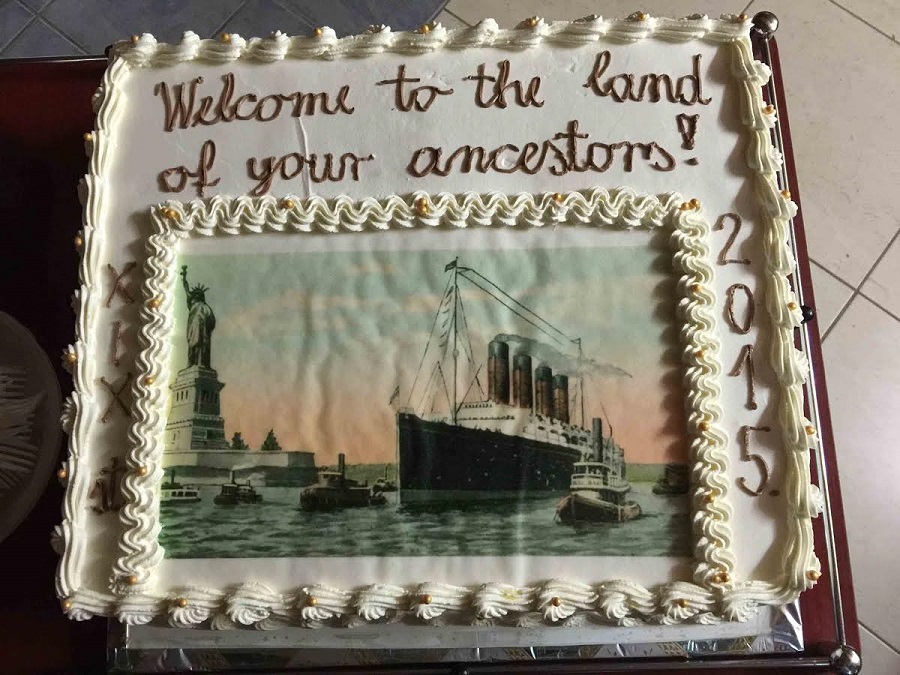
1. You have been running the popular Croatian Heritage and Genealogy Facebook group for several years now. Tell us firstly about your Croatian connection, and why did you decide to start the group?
My connection to Croatia is through my maternal grandparents, who came from the Karlovac/Ozalj area of Croatia. During my growing up years, I spent a great deal of time with them on their farm in Pennsylvania. My mother enrolled me at 6 months old in the Croatian Fraternal Union. For many years I paid little attention to the CFU Croatian newspaper but sometime around 1985 I began to read historical articles. Just before the Homeland War, I sought my Grandparents' birth records, visiting the old Yugoslav Consulate in Cleveland. During that visit, the men standing around kept a watchful eye on me, little did I know that Cleveland was a hotbed for Croatian nationalists.
Then when the Homeland War broke out I emersed myself in all things Croatian: enrolling my children in a Croatian Tamburica group, helping out at our Croatian Heritage Museum in Cleveland, packing humanitarian containers going to Croatia and becoming active in a local Croatian Newspaper, the Croatian Voice. Our family sponsored war orphans in Croatia and we sponsored Croatian War Refugees coming to America. Our first visit was in 1997, which is hard to describe, as I walked between my ancestral villages. Since that time we have been back to Croatia nearly every year since 2005 taking over 700 people on Heritage Tours, where our goal is to connect them with their ancestral culture and in many cases help them find family.
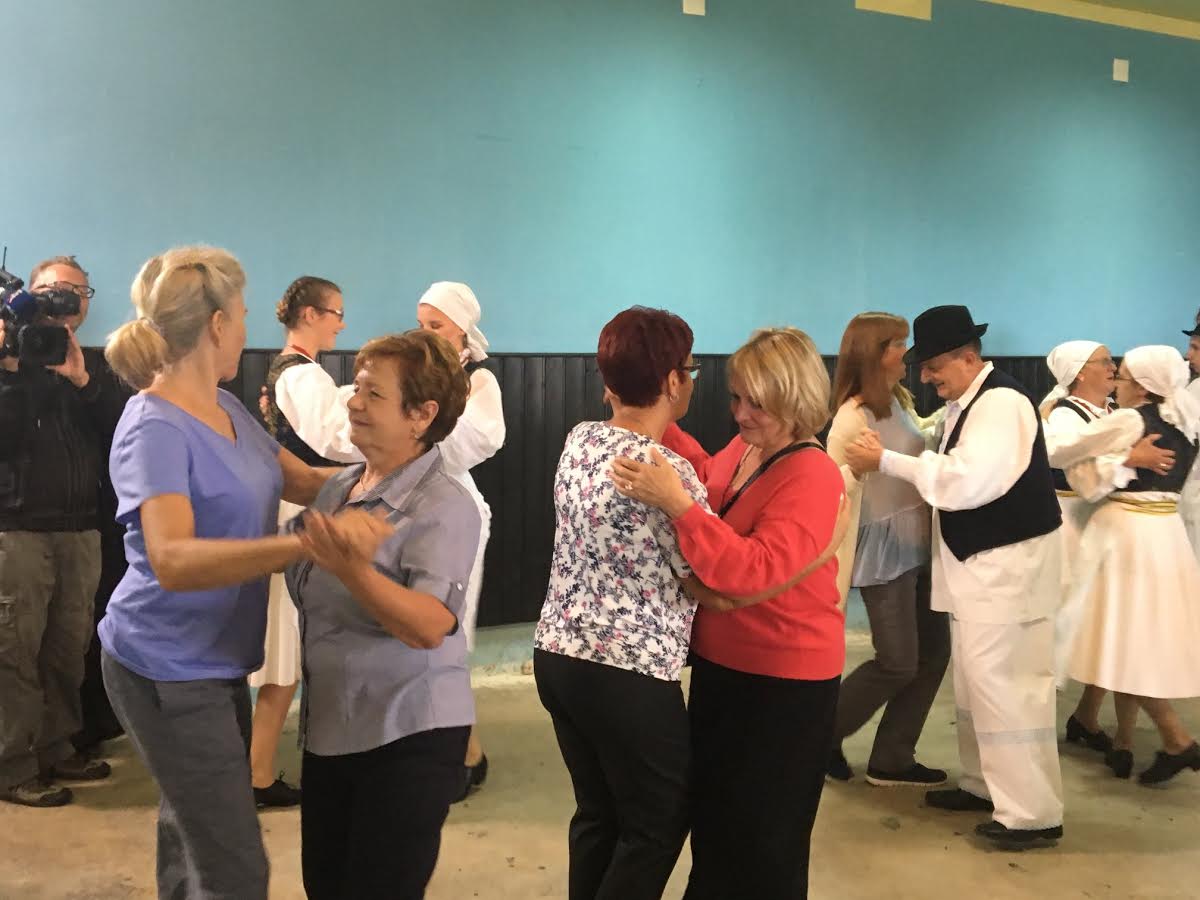
(Bonding with the locals in Gornje Bukovlje)
2. You also have various services for people trying to trace their Croatian heritage. Tell us about those.
The past 30 years have been a learning and sharing experience. As I delved into Croatian genealogy, I found I was able to help others, first on the old Croatian Ancestry forums and later on Facebook. Nowadays I offer 1 or 2 Heritage Tours to Croatia, Croatian Genealogy Seminars in various cities in the US, a Croatian Genealogy Handbook which I sell online in PDF format, and can offer genealogy services to many people gathering info to help them build a family tree.
Interestingly each of these came about from answering questions. First, someone suggested I do a seminar for the group, then someone suggested I take them to Croatia.
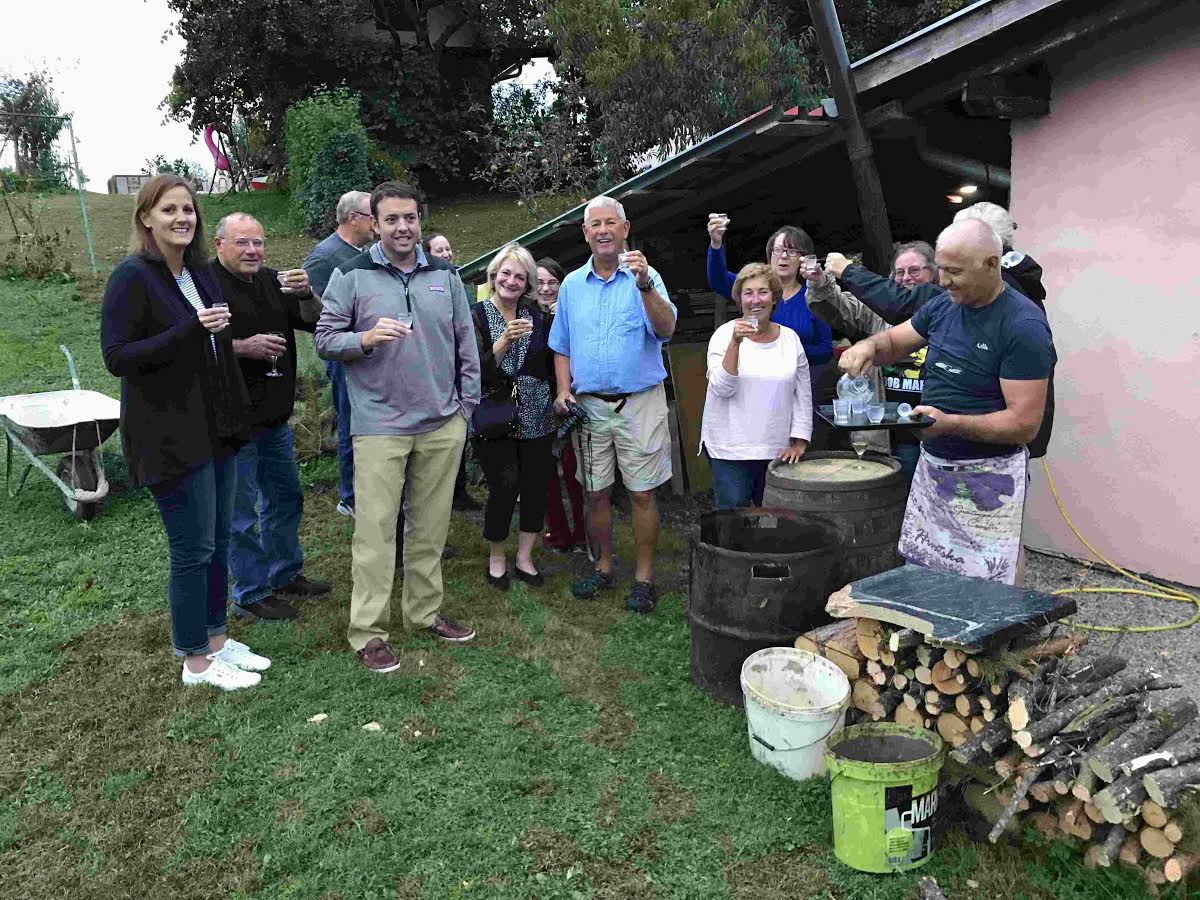
(Rakija stop at Plitvice Lakes with the Rubcic family)
3. Heritage tours must be incredibly uplifting experiences, as you bring people to the Croatian villages and homes of their ancestors. What does a typical tour look like?
Ah yes, the tours are very special. I still recall our first Heritage Tour in 2005. I had no idea how the tour would roll out, but as we went along people began to bring paperwork for their ancestors in America. We connected several people on that tour with their ancestral villages. And we were interviewed by Dobro Jutro Hrvatska during our visit to the State Archive. Since then we have been interviewed in print media, TV and radio.
Our typical tour includes famous places that people have heard about and think they need to see, such as Dubrovnik, Split, the common tourist places. But we try to introduce people places off the beaten path such as Smiljan the birthplace of Nikola Tesla, Lekenik, the Croatian Parliament, the famous but defunct resort of Kupari, the Lippizaner Stud farm at Djakovo, the Church of the Croatian Martyrs in Udbina, the Homeland War Cemetery in Vukovar, several castles including ones at Ozalj, Knin, Varazdin, Velike Tabor and Trakoscan, ethno selos at Trg/Ozalj, Kumrovec, Pakovo selo near Drnis, the pilgrimage villages of Marija Bistrica and Medjugorje, and one of three places in Croatia where Fiddler on the Roof was filmed, backroads in Dalmatinska Zagorje and a place we visit yearly the non-touristic village of Gornje Bukovlje where the local Ladies Club treats us to a day of music, dancing, eating and drinking.
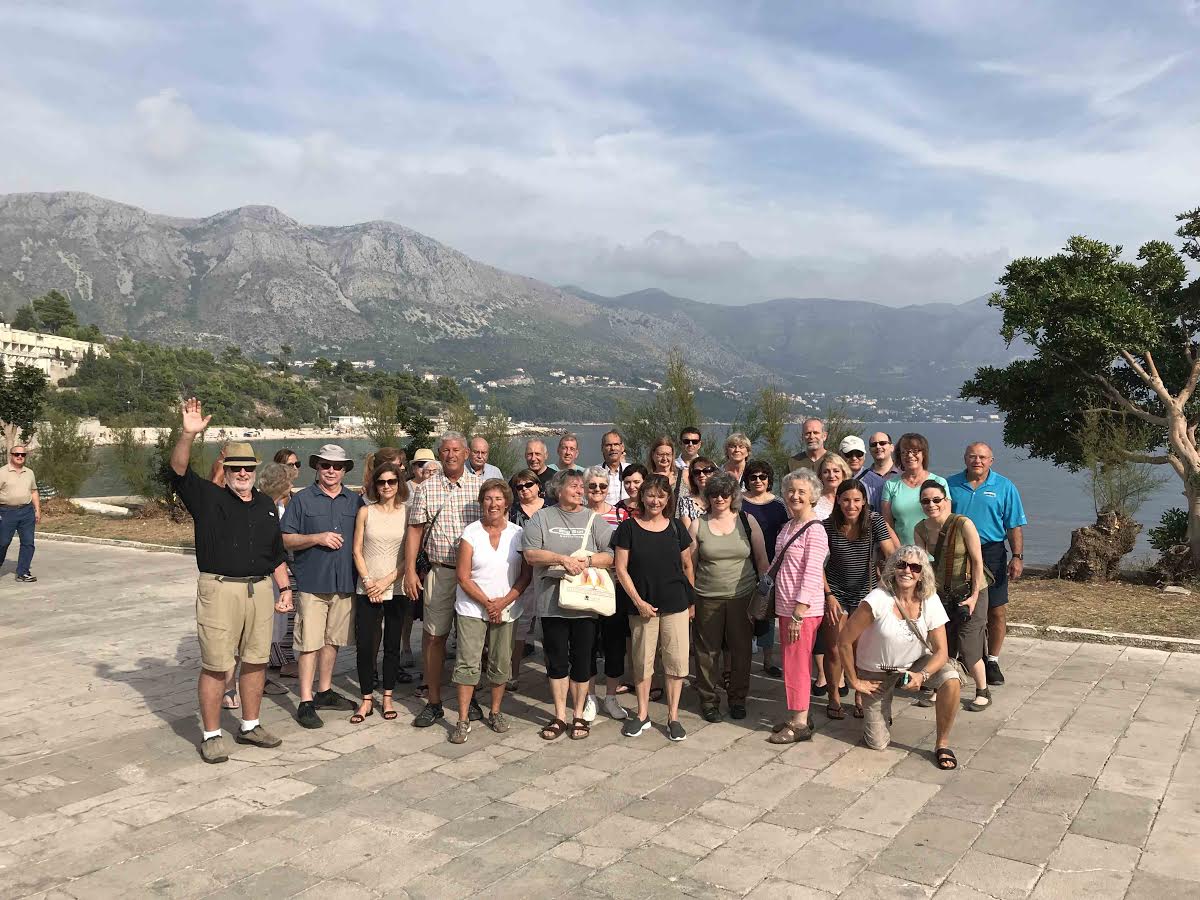
I emphasize to people that this place is as close as they will come to the Croatia of their ancestor’s day. We will even make surprise visits to ancestral villages of someone in our tour group if we are close. We set aside free time and encourage people to visit their ancestral villages, which we can help plan. And for those who want to do research, we have time planned on each tours at the State Archive in Zagreb. And I always seek out a place where we can enjoy traditional music, customs and food, such as Sarma. The tours bring out emotional responses from people.
The last several years we have added a week-long cruise on the Adriatic, employing small family-owned ships. These small ships are a great way to see the Croatian scenery, as you have a 180-degree view. We sail every morning stopping for lunch and a swim and then dock in the late afternoon in a historic port where we spend the night. Carrying about 38 passengers, breakfast and lunch service, a bar, a hot tube we reserve the entire boat for our group.
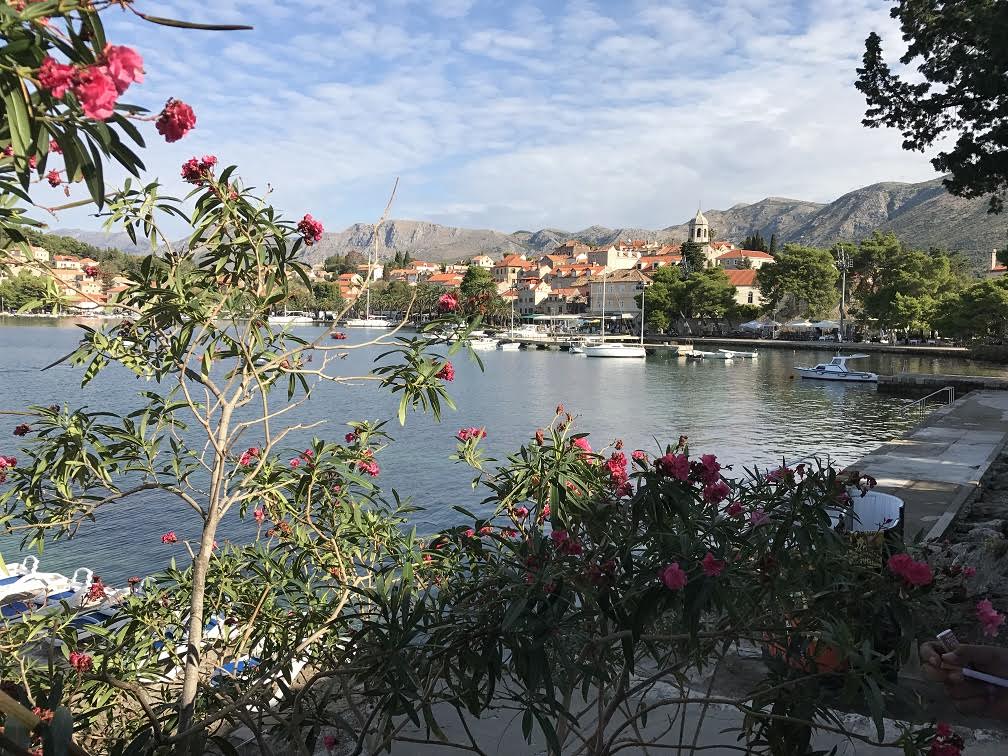
(Cavtat)
4. I am sure you have witnessed some amazing connections of people with their past on these tours. Any particular favourite stories and memories?
We have dozens of touching stories, having help connect people with long-forgotten family in Croatia.
A good example of the emotion of our tour group can be found in this Andrew Norris (a transplant from the UK), who lives much of the year in Gornje Bukovlje. This video is from our visit to Gornje Bukovlje in 2012.
One of my all-time favorites was a few years ago when we had a lady in our group, whom I had helped find her ancestral village of Jazevica. My Zagreb friend, Dejan Perhat, had located her family. On our way back from Osijek, we received a call from Dejan telling us her family invited the entire group to stop at their home in Jazevica. What an experience, they laid out their best sunka, kobasica, sir, kruh, kolache and of course a never-ending supply of various Croatian liqueurs in an outdoor pavilion. There was not a dry eye that day. Even those who had not planned a visit to their ancestral villages were inspired to do so.
I would be remiss to not mention others in Croatia who have helped: Sanja Frigan-Cihua, Lidija Sambunjak, my dear departed from Miro Caic, Zoran Stupar, Alen Miocevic (our guide since 2005) and our friends from Hrvatska Matica Mirjana Piskulic, Branka Bezic-Filipovic and Hrvoje Salopek.
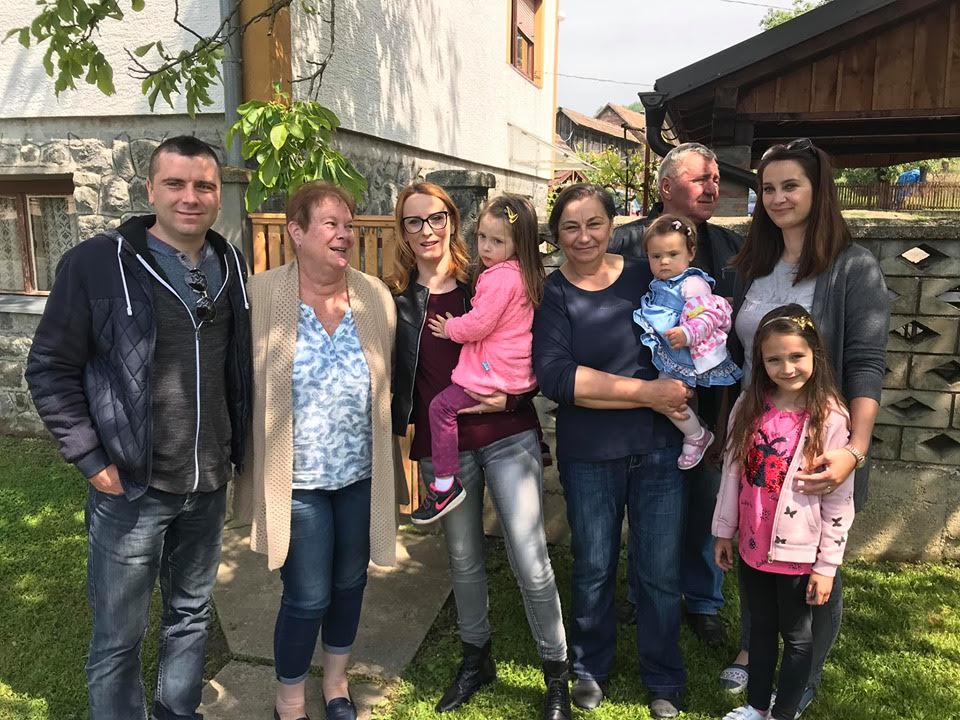
(Ancestral visit to Jazevica)
5. You have performed great work helping people trace their Croatian roots online as well. What are the most common enquiries and requests for help?
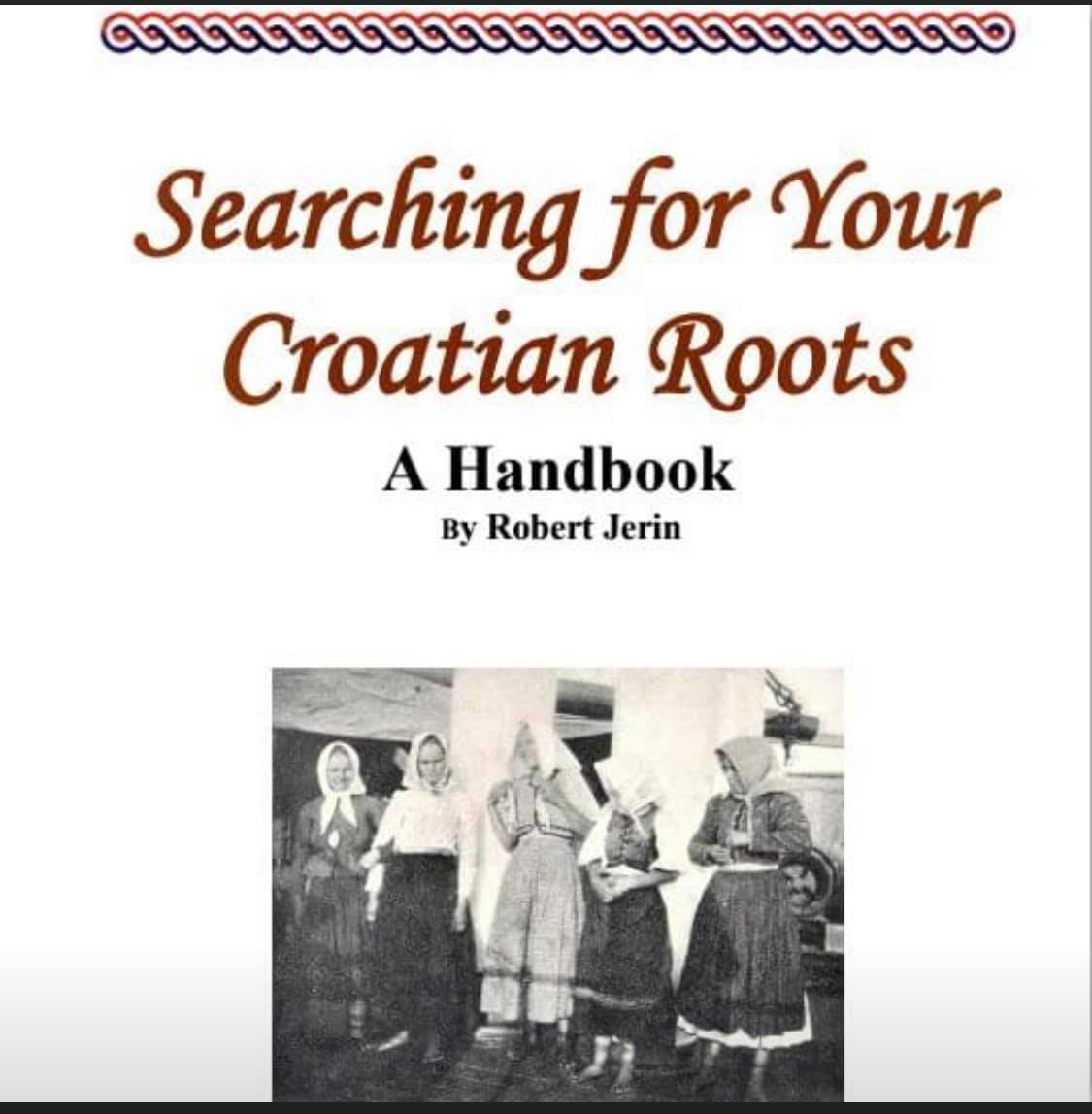
Many people begin by simply asking about a surname, little do they realize the surname may be quite common in Croatia. After some prodding they come up with more details. In most cases we have a high degree of success, even though they may only know the Anglicized surname. Funny that many people say their ancestors came from Zagreb. But in fact Zagreb was a well-off city that offered employment, thus very, very few left that city for America in the early 20th Century. Most came from small villages seeking to make money in America in hopes to return home and buy land. Perhaps 25% or less actually fulfilled that goal as most found a new life in America. I always tell people they need to work backwards from themselves, parents, grandparents in order to establish a town or village of origin in Croatia.
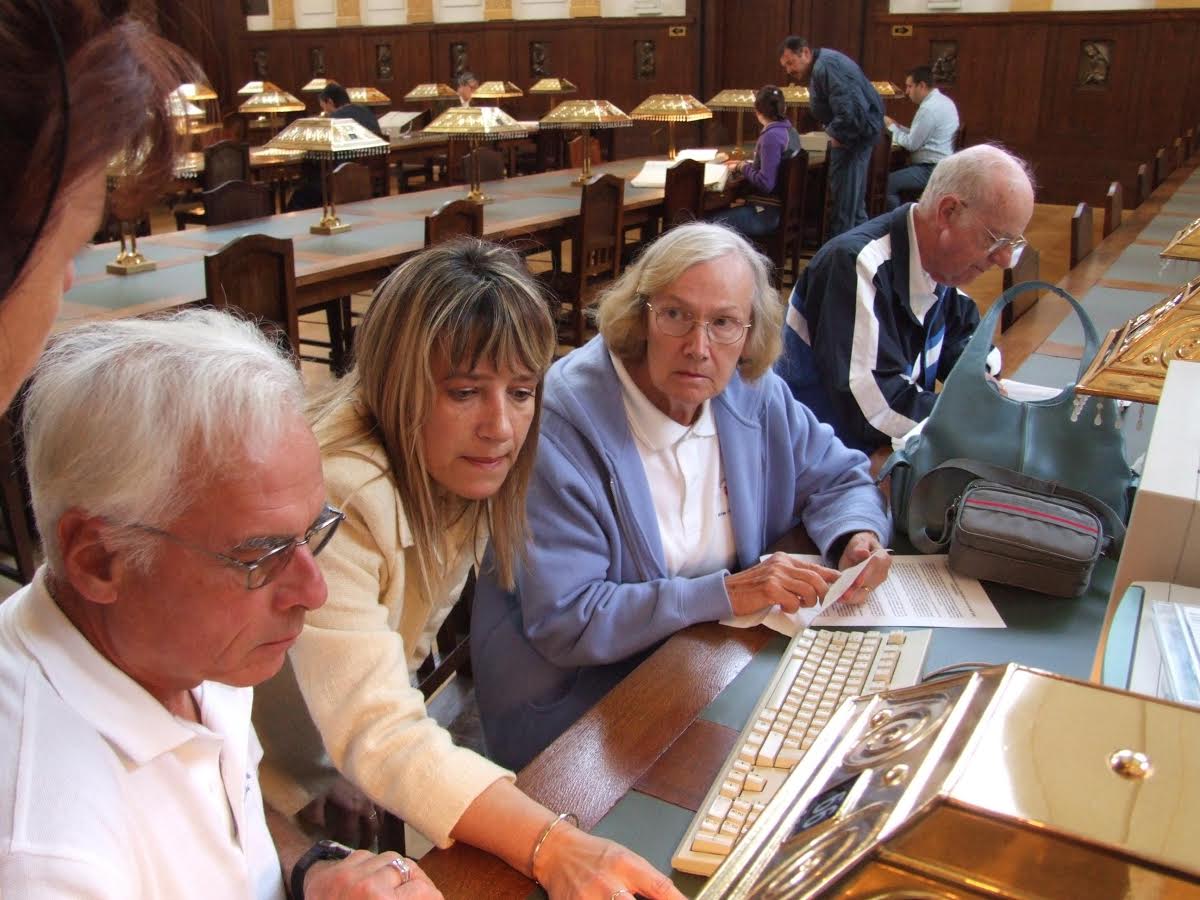
(Heritage research at Zagreb State Archives)
6. Tell us about moderating the Facebook group. Anything that focuses on the past in Croatian is almost always contentious, but you manage to keep things very civil.
This is sometimes a challenge but most of the people in our group are very kind and helpful. While I certainly can discuss politics I have banned political discussion from the group. Everyone now and then we have someone object, but the rules are clearly stated in the welcome to the group. It is not always easy, having been called a censor (yes, I am sometimes), a communist, a fascist among other unmentionable names. But when I part company with members who do not agree with the purpose of our group, I always try to leave them on a good note.
I am surprised how even some Croatian born people are not as well versed in their history as one would imagine…. But again our group is to share such knowledge.
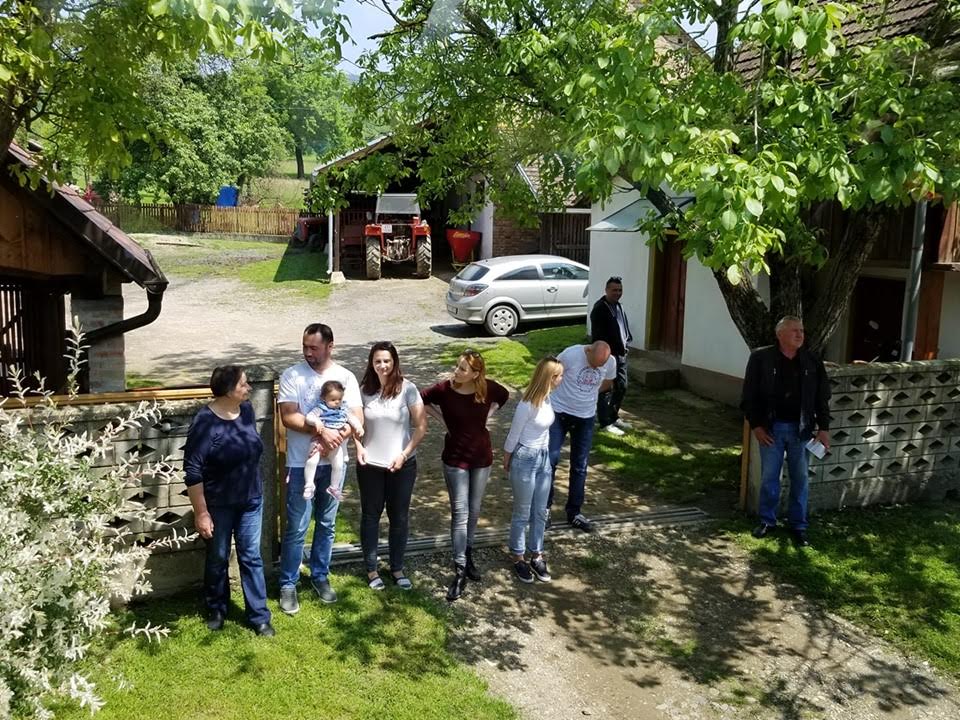
7. How closely do you follow daily events in Croatia, and how do you view Croatia today from your perspective in the States?
I get a Google News Feed every day of Croatian news, including Total Croatia News. And I Skype every week with my friend and guide in Rijeka, Alen Miocevic. So I follow the news and events somewhat closely.
I view Croatia as a place of great possibilities which may be a bit stymied by negative attitudes of some and a bureaucracy which has a long history in Croatia dating back to the days of the Austro-Hungarian Empire. But I view Croatia as a place that is improving and trying to find its place among the larger countries of the world. As I am wont to say, korak po korak (step by step).
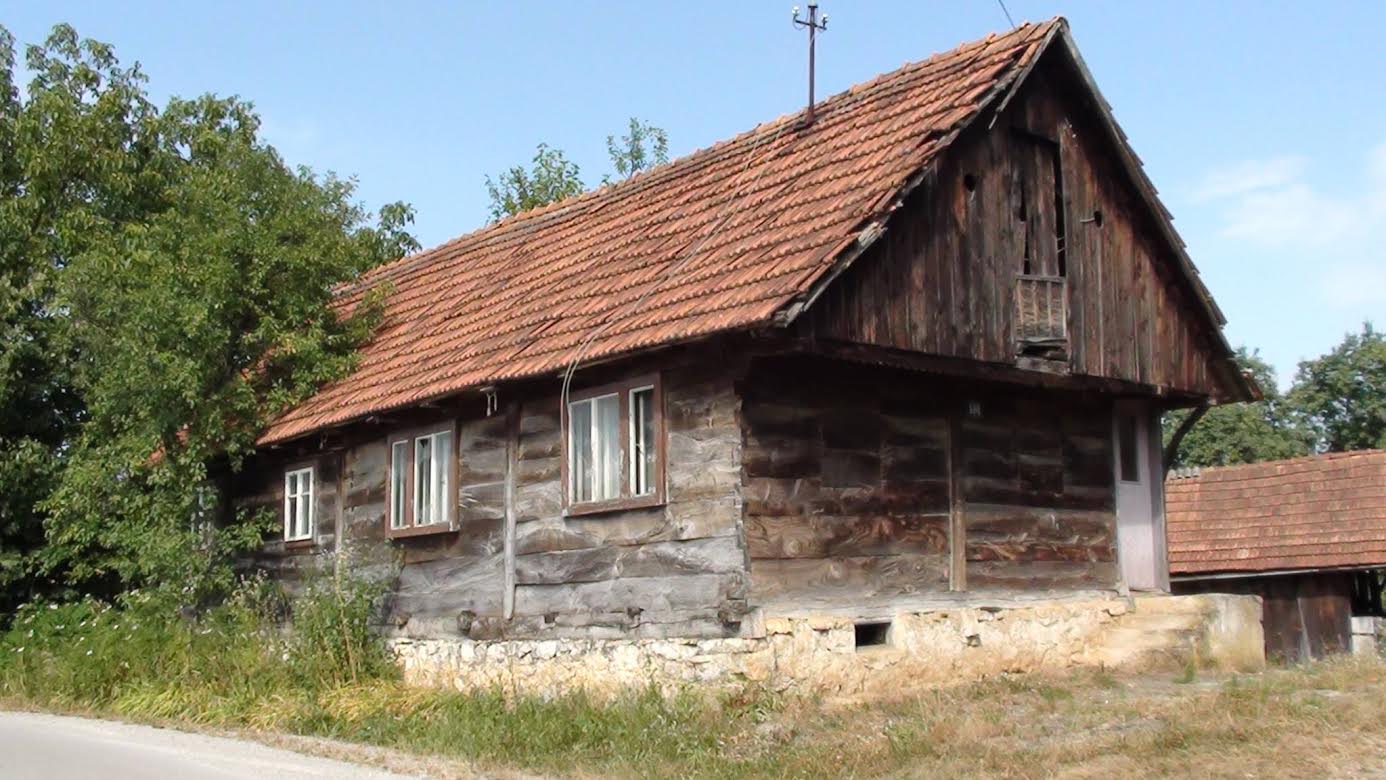
8. And finally, favourite place in Croatia, and why?
Oh my this is an unfair question. We have many favorite places in Croatia, but always feel like we are coming home when we visit Gornje Bukovlje. While I enjoy the famous places, I love visiting places off the beaten path. we get to visit many ancestral and interesting places off the beaten path. Sosice in Zumerak, land of the Uskoks, Delnice frog museum, Lokve, Mrkopalj, Lič and Prigorje. These were surprise stops for people whose ancestors were born there. All these places have some significant place in Croatian history but are largely bypassed by tour groups. Occasionally we will surprise the group with a roadside picnic where we enjoy sampling Croatian food and drink One of my favorite things is to get up before the tour group and take walks. I am amazed at some of the places I find and wonder why tour guides don’t take us to those places, but I guess they like taking groups to Lotroscak Tower at noon for the firing of the cannon.
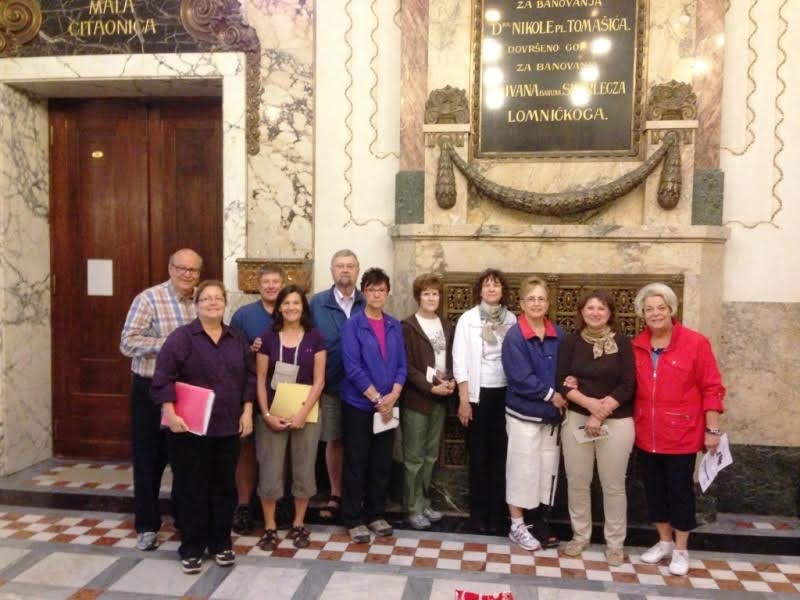
You can follow the excellent Croatian Heritage and Genealogy Facebook group here.
And if you are interested in joining one of the 2021 heritage tours to discover your Croatian roots, here are the links to the groups in July and in September.
For more from the Croatian diaspora, follow the dedicated TCN section.
Expats in Croatia/Pandemic Edition: Michael Freer, from UK in Split (VIDEO)
February 10, 2021 - The global pandemic rages on and we’re still locked down with restrictions and social isolation. Some people are surviving and others are thriving. What’s their story? Episode #3 with… Michael Freer from the UK.
It’s almost one year since the World Health Organization declared covid-19 a global pandemic on March 11, 2020. Nobody expected what came next and certainly nobody expected things to last this long. But here we are, wondering when it will be over and hoping the vaccine will restore some sense of normalcy.
In the meantime, how are people filling their days? When it’s all said and done, how do they want to remember this time looking back? In this new series we’ll hear from all sorts of people in Croatia about their pandemic experience and their predictions for the future.
Episode #3 with… Michael Freer from the UK.
Since arriving in Croatia nearly 6 years ago, Michael Freer has become somewhat of a local celebrity on the Split scene. For a guy who’s lived in multiple countries around the world—Spain, Argentina, and India for six months or more, and Cambodia for two years—he’s a “regular” around here. A little background… in Cambodia he worked for a school on curriculum development and he managed volunteers. He also had a factory gig implementing social accountability standards. Here in Split he runs his own company supporting early stage social enterprises and dedicates one day a week to working for a nonprofit, supporting foreign entrepreneurs for an EU project. Outside of all this, or perhaps because of it, he’s constantly networking, meeting new people, and getting his hands into all sorts of innovative projects. Commendable stuff, but what made the biggest impression on this girl? It was this, “oh yeah, I swim all year long, I go in the water every week.” Anyone who can jump in the Adriatic in these winter temperatures is celebrity-worthy in my book. And one more “plus” on my checklist, he learned how to make goat cheese during lockdown. Yum!
Story and photographs ©2021, Cyndie Burkhardt. https://photo-diaries.com
For more of Cyndie's experiences, check out her Croatia Through the Eyes of a Digital Nomad column.
Are you an expat in Croatia who would like to share your experiences during the pandemic in Cyndie's video series? If yes, please contact her on This email address is being protected from spambots. You need JavaScript enabled to view it.
We are also keen to interview any digital nomads who have successfully applied for the new visa, after the first success in Istria - Meet Melissa Paul, Owner of Croatia's First Digital Nomad Visa. Please contact us on This email address is being protected from spambots. You need JavaScript enabled to view it. Subject Nomad Visa.
Kristijan Sindik Completes 7 Marathons in 7 Days for KBC Split Pediatric Oncology Department
February 11, 2021- With tears in his eyes and a smile across his face, Split marathoner Kristijan Sindik arrived in rainy Tivat, where he spectacularly finished his seventh humanitarian marathon as part of the "Golden Ribbon - 7 marathons in 7 days" campaign, an impressive undertaking that started in Split to raise money for the KBC Split Department of Pediatric Oncology.
"The seventh marathon is over! For the first time, I am speechless," said Kristijan for Slobodna Dalmacija, who was greeted on the waterfront in Tivat by many friends and all those who wanted to express their support and congratulate him on this incredible feat.
Accompanied by a group of runners full of energy, Sindik set off from Čilipi to Tivat Wednesday morning, despite the relentless rain that followed them for 42 kilometers, even stronger than the day before when they ran from Orašac to Dubrovnik to Čilipi.
Friends from Montenegro greeted them at the border crossing, with whom they continued the seventh marathon to the final finish.
"Thank you all! The action lasts until March 1! Many donations came from 15 countries around the world, including Croatia, the USA, Russia, and Turkey. The corona topic has burdened us for a year, and one such issue is unnecessarily marginalized.
So you have the opportunity to do a great thing and donate 100 kuna for children in oncology. I’ve been through this, I know what that means, and I know how much outside help means," Sindik said.
"They ask me if it was difficult. On the way, we were followed by rain, today all day. The water was up to my knees! The right path is always difficult. I went that way," Kristijan said, inviting all people of goodwill to donate 100 kuna or 15 euros to the KBC Split Department of Pediatric Oncology.
"This is equal to 3 packs of cigarettes, three drinks at a cafe," he emphasized.
He did not forget to thank his entire team that followed him on the journey and Richard Kuhar, ultramarathoner, and Ante Bebić, the triathlon coach who ran all seven marathons with him.
Many others joined Kristijan along the way, all motivated by the act of helping others. Those interested in donating to KBC Split can do so here: HR1424070003106794371.
To read more about sport in Croatia, follow TCN's dedicated page.


